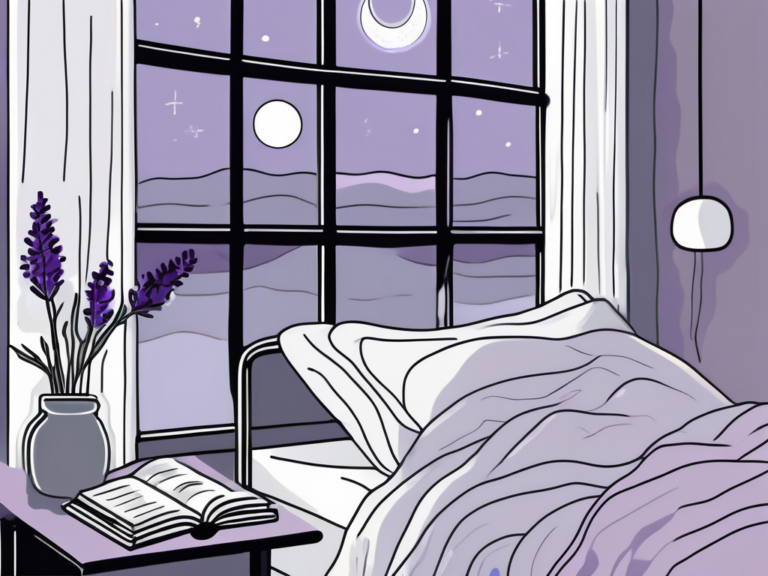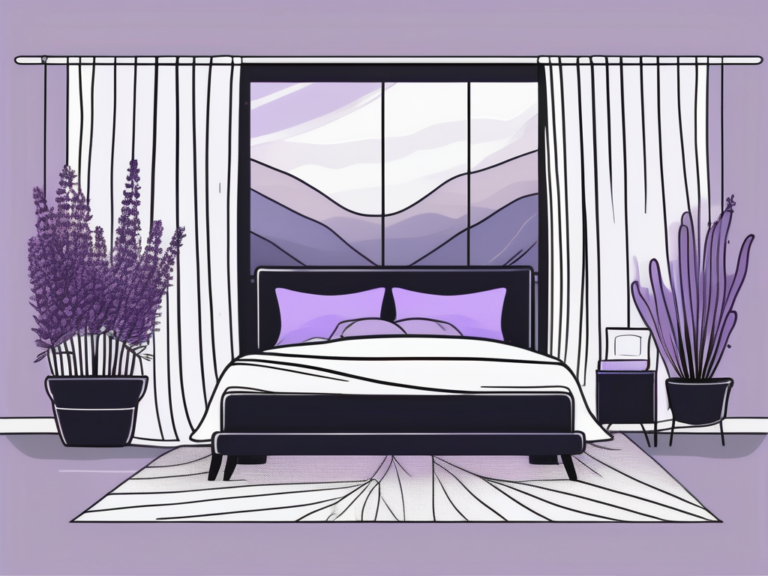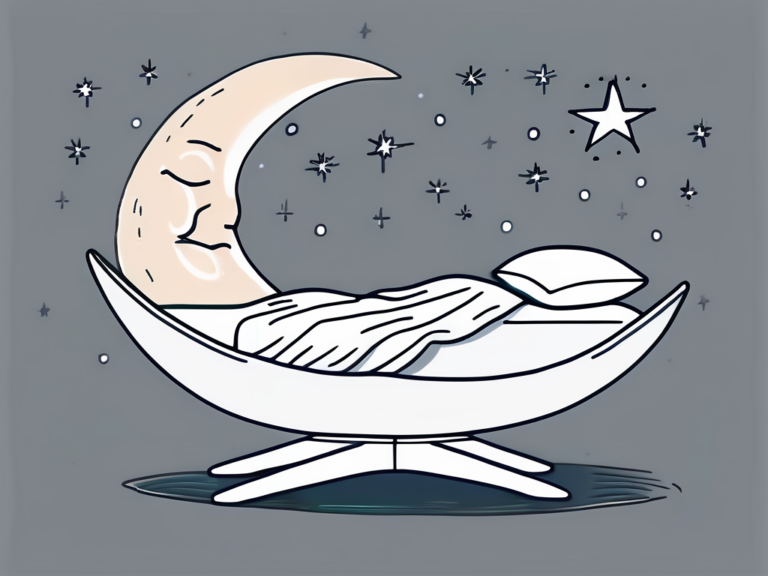Tips for When You Can’t Sleep
When sleep eludes us night after night, it can greatly impact our physical and mental well-being. Insomnia, the inability to fall asleep or stay asleep, can be frustrating and exhausting. In this article, we will explore various tips and strategies to help you overcome sleepless nights and achieve quality rest.
Understanding the Causes of Insomnia
Insomnia, a sleep disorder that affects millions of people worldwide, can stem from a variety of factors, both physical and psychological. By understanding the underlying causes, we can better address the issue at hand and work towards finding effective solutions.
When it comes to physical factors affecting sleep, there are several key elements to consider. Physical discomfort, for instance, can significantly disrupt our ability to fall asleep and stay asleep throughout the night. Pain, whether it’s due to an injury or a chronic condition, can make it challenging to find a comfortable position and relax enough to drift off into slumber. Additionally, an old or ill-fitting mattress can cause discomfort and contribute to sleep disturbances. The importance of a supportive and comfortable mattress cannot be overstated, as it plays a crucial role in promoting restful sleep. Furthermore, a noisy sleeping environment, such as loud neighbors, traffic sounds, or a snoring partner, can also disrupt our sleep patterns and lead to insomnia.
On the other hand, psychological factors can also have a profound impact on our ability to sleep. Stress, anxiety, and racing thoughts can wreak havoc on our minds, making it difficult to achieve a state of relaxation necessary for sleep. The pressures of daily life, whether related to work, relationships, or personal matters, can create a constant stream of worries that keep us awake at night. Racing thoughts, like a never-ending carousel of concerns, can make it challenging to quiet the mind and let go, leading to insomnia.
It is important to recognize that the causes of insomnia can vary from person to person. While some individuals may experience primarily physical factors affecting their sleep, others may find that psychological factors play a more significant role in their insomnia. In many cases, a combination of both physical and psychological factors may be at play, making it essential to address all aspects when seeking effective treatment.
Lifestyle Changes to Improve Sleep
When struggling with insomnia, making certain lifestyle changes can have a positive impact on sleep quality. In addition to the commonly known dietary adjustments and the role of exercise, there are other factors that can greatly influence your ability to get a good night’s sleep.
Dietary Adjustments for Better Sleep
Be mindful of what you consume, especially close to bedtime. Avoid consuming caffeine, nicotine, and alcohol, as they can interfere with sleep patterns. However, it’s not just about avoiding certain substances. Incorporating sleep-friendly foods into your diet can also make a difference. For instance, foods rich in tryptophan, such as turkey, nuts, and seeds, can promote the production of melatonin, a hormone that regulates sleep. Additionally, magnesium-rich foods like spinach, bananas, and whole grains can help relax your muscles and calm your nervous system, aiding in a more restful sleep.
The Role of Exercise in Sleep Quality
Regular exercise can contribute to better sleep. Engage in physical activity during the day, but try to avoid vigorous exercise close to bedtime, as it can increase alertness. However, it’s not just about the timing of exercise; the type of exercise you choose can also impact your sleep quality. Incorporating activities that promote relaxation, such as yoga or tai chi, into your exercise routine can help reduce stress and anxiety, allowing for a more peaceful sleep. Additionally, spending time outdoors and exposing yourself to natural light during the day can help regulate your circadian rhythm, making it easier to fall asleep and wake up naturally.
Creating a sleep-friendly environment is another crucial aspect of improving sleep quality. Ensure that your bedroom is cool, dark, and quiet. Consider investing in blackout curtains, earplugs, or a white noise machine to block out any disruptive stimuli. Furthermore, establishing a consistent bedtime routine can signal to your body that it’s time to wind down and prepare for sleep. Engaging in relaxing activities such as reading a book, taking a warm bath, or practicing deep breathing exercises can help you transition into a more peaceful state of mind.
By implementing these lifestyle changes and taking a holistic approach to sleep, you can significantly improve your sleep quality and overall well-being. Remember, it’s not just about finding a quick fix; it’s about adopting healthy habits that support a restful night’s sleep.
Creating a Sleep-Inducing Environment
Your sleep environment plays a crucial role in promoting a restful night’s sleep. But what exactly makes a sleep-inducing environment? Let’s delve deeper into this topic and explore some additional factors that can contribute to a truly peaceful slumber.
First and foremost, let’s talk about the importance of a comfortable bed. Investing in a high-quality mattress and pillows that adequately support your body can make a world of difference. Imagine sinking into a plush, cloud-like mattress that contours to your every curve, providing unparalleled comfort. Combine that with pillows that cradle your head and neck, and you have the perfect recipe for a truly blissful sleep experience.
The Importance of a Comfortable Bed
But it’s not just about the physical aspects of your bed. Your sleep environment extends beyond the boundaries of your mattress. To optimize your sleep conditions, it’s crucial to ensure that your bedroom is cool, quiet, and dark. Picture a serene oasis where the temperature is just right, the sounds of the outside world are muffled, and the darkness envelops you like a cozy cocoon.
The Impact of Light and Noise on Sleep
Now, let’s delve into the impact of light and noise on your sleep quality. We all know that exposure to bright lights can interfere with our body’s natural sleep-wake cycle. But did you know that it’s not just any light that can disrupt your slumber? Specifically, blue light emitted by electronic devices can be particularly detrimental to your sleep. So, it’s essential to limit your exposure to these lights, especially in the evenings when your body is preparing for rest.
But what about noise? Unwanted sounds can be a major sleep disruptor. That’s where blackout curtains and earplugs come to the rescue. By using blackout curtains, you can effectively block out excess light, creating a serene and peaceful environment that promotes deep sleep. And if you’re sensitive to noise, earplugs can be a game-changer. They help to eliminate any sounds that might disturb your slumber, allowing you to drift off into dreamland undisturbed.
So, there you have it! Creating a sleep-inducing environment goes beyond just having a comfortable bed. It involves optimizing your surroundings to ensure that your sleep is undisturbed and truly restorative. From investing in the right mattress and pillows to controlling light and noise, every little detail matters when it comes to achieving the perfect sleep sanctuary.
Relaxation Techniques for Better Sleep
Implementing relaxation techniques can help calm an active mind and prepare the body for sleep. In today’s fast-paced world, finding ways to unwind and achieve a restful night’s sleep is essential for overall well-being. Luckily, there are various techniques that can aid in achieving a state of relaxation before bedtime.
Mindfulness and Meditation for Sleep
Practice mindfulness and meditation exercises before bed to promote relaxation. Mindfulness involves focusing your attention on the present moment, allowing you to let go of racing thoughts and worries. By embracing a state of tranquility, you can create an optimal environment for sleep.
One effective meditation technique is the body scan. Lie down comfortably and bring your attention to different parts of your body, starting from your toes and gradually moving up to your head. Notice any tension or discomfort and consciously release it, allowing your body to fully relax.
Breathing Exercises for Sleep
Engage in deep-breathing exercises, such as 4-7-8 breathing, to promote relaxation. By inhaling deeply through the nose, holding the breath, and exhaling slowly through the mouth, you can slow down your heart rate and induce a sense of calm. This technique is particularly helpful for those who struggle with anxiety or racing thoughts at bedtime.
Another effective breathing exercise is the alternate nostril breathing. Sit comfortably with your spine straight and close your right nostril with your right thumb. Inhale deeply through your left nostril, then close it with your ring finger. Open your right nostril and exhale slowly. Repeat this process, alternating nostrils, for several minutes. This practice helps balance the energy in your body and promotes a sense of relaxation.
By incorporating these relaxation techniques into your nightly routine, you can create a peaceful transition from the busyness of the day to a restful night’s sleep. Remember, consistency is key, so make an effort to practice these techniques regularly to reap the full benefits. Sleep well!
Overcoming Nighttime Anxiety and Stress
Combatting nighttime worry and stress is crucial for achieving restful sleep. When we lay our heads down on the pillow, it’s essential that our minds are calm and at ease. However, for many of us, nighttime can be a time of heightened anxiety and stress. The good news is that there are effective techniques and natural remedies that can help us overcome these challenges and pave the way for a peaceful slumber.
One powerful approach to tackling sleep-related anxiety is cognitive-behavioral therapy (CBT). This therapeutic technique focuses on identifying and challenging negative thoughts that contribute to our anxiety. By keeping a journal, we can gain insight into our worries and fears, allowing us to confront and address them head-on. Additionally, setting aside dedicated “worry time” during the day can help us contain our anxieties and prevent them from infiltrating our nights.
Cognitive Behavioral Techniques for Sleep Anxiety
Cognitive-behavioral therapy (CBT) techniques, such as journaling, challenging negative thoughts, and setting aside dedicated “worry time,” can help alleviate sleep-related anxiety. By engaging in these practices, we can gradually reframe our thoughts and develop a more positive and relaxed mindset when it’s time to sleep.
However, it’s not just therapy that can aid us in our quest for a peaceful night’s rest. Nature has provided us with a treasure trove of remedies that can induce relaxation and create a conducive environment for sleep. Herbal teas, for example, have been used for centuries to calm the mind and soothe the body. Infusions like chamomile, lavender, and valerian root can work wonders in promoting a sense of tranquility before bedtime.
Natural Remedies for Sleep-Inducing Relaxation
Exploring natural remedies like herbal teas, aromatherapy, and soothing music can promote relaxation and create a conducive environment for sleep. Aromatherapy, in particular, harnesses the power of essential oils to create a calming atmosphere. Scents like lavender, bergamot, and ylang-ylang can help ease anxiety and lull us into a state of deep relaxation. Pairing these scents with soothing music can further enhance the ambiance, creating a serene sanctuary for restful slumber.
Remember, overcoming nighttime anxiety and stress is not an overnight process. It requires patience, persistence, and a willingness to try different techniques. By incorporating cognitive-behavioral therapy techniques and exploring natural remedies, we can take significant steps towards achieving the peaceful sleep we deserve. So, let’s embrace these strategies and bid farewell to restless nights!
When to Seek Professional Help
If insomnia persists despite implementing various strategies, it may be indicative of a more chronic issue.
Recognizing Chronic Insomnia
If you consistently experience difficulty falling asleep or staying asleep for more than three nights a week for three months or longer, it’s essential to seek professional help.
Treatment Options for Persistent Sleep Issues
A healthcare professional specializing in sleep disorders can offer a range of treatment options, including therapy, medication, or a combination of approaches, to address persistent insomnia.
When it comes to chronic insomnia, it’s crucial to understand that it can have a significant impact on various aspects of our lives. The persistent lack of sleep can lead to daytime fatigue, difficulty concentrating, and decreased productivity. Moreover, it can affect our mood, causing irritability, anxiety, and even depression. Therefore, seeking professional help is not only about improving our sleep but also about enhancing our overall well-being.
When you consult a healthcare professional specializing in sleep disorders, they will conduct a thorough evaluation to determine the underlying causes of your insomnia. This evaluation may involve discussing your sleep patterns, medical history, and lifestyle factors that could contribute to your sleep issues. By understanding the root causes of your insomnia, the healthcare professional can tailor a treatment plan specifically for you.






